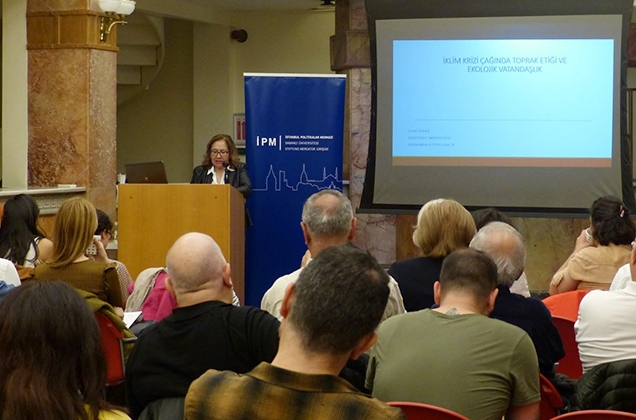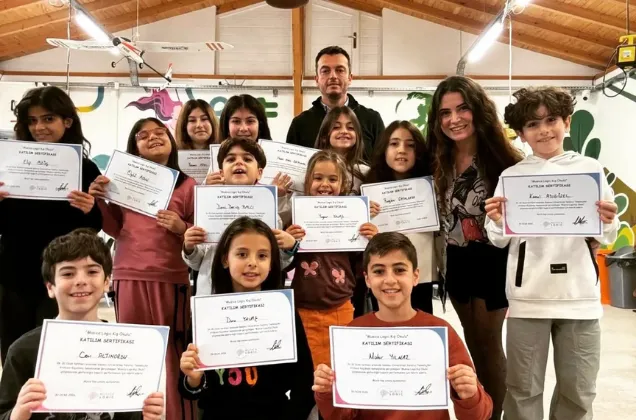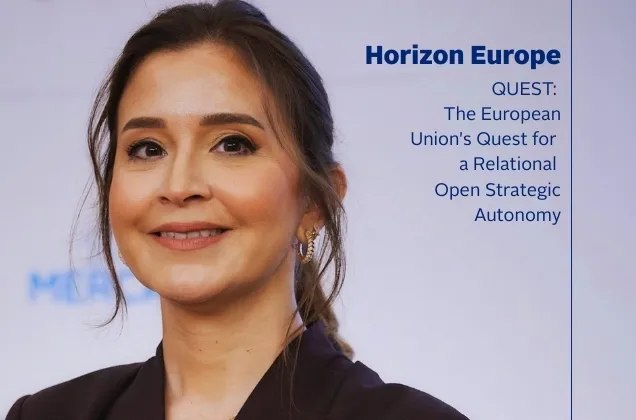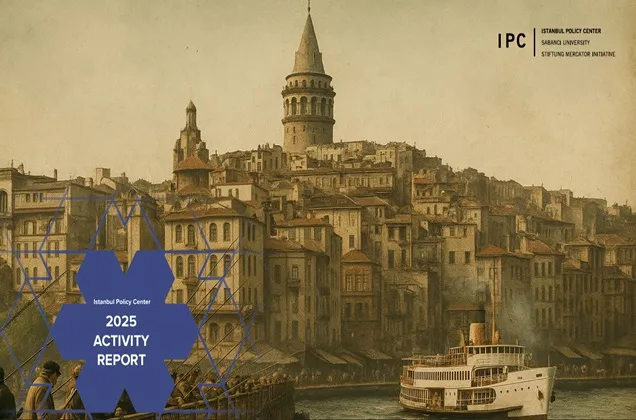06/11/2019
IPC Nature and Climate Talks was continued with Prof. Dr. Ufuk Özdağ, a lecturer at Hacettepe University Faculty of Letters and the Founding Director of Land Ethic Research and Application Center:
WE HAVE TO START ECOLOGICAL RESTORATION IN DEGRADED AREAS WITH THE COOPERATION OF SOCIETY

The fifth speaker of the Nature and Climate Talks, organized by Sabancı University Istanbul Policy Center (IPC) is Prof. Dr. Ufuk Özdağ, who is a lecturer at Hacettepe University Faculty of Letters and the Founding Director of Land Ethic Research and Application Center. During the speech entitled "Land Ethics in the Age of Climate Crisis and Ecological Citizenship", Prof. Dr. Özdağ stated, "For the ecological era of the future, every citizen should take responsibility for the protection of nature and the restoration of degraded areas".
The fifth interviews of "Nature and Climate Talks" of Sabancı University Istanbul Policy Center (IPC) that bring together the researchers, academicians and civil society volunteers working in the field of nature conversion and climate change, was about the following concept: "Land Ethics and Ecological Citizenship in the Age of Climate Crisis". This month's speaker of "Nature and Climate Talks" that were initiated to present the environment and climate fields with a multidisciplinary understanding, was Prof. Dr. Ufuk Özdağ, who is a lecturer at Hacettepe University Faculty of Letters and the Founding Director of Land Ethic Research and Application Center.
Professor Dr. Özdağ, in her speech, mentioned Land Ethics the idea of Aldo Leopold, one of the pioneers of the modern environmental movement. That idea includes the conservation of wild areas, wildlife management, nature training on open field and the restoration of degraded lands and basins in cooperation with society. She gave examples of ecological restoration activities that are supported by the community and that focused on ecosystem health.
Regarding ecological citizenship, Prof. Dr. Özdağ emphasized the importance of grassroots movements and their participation within the context of the ecological era and she stated, “We should strive to spread the idea of land ethics in our country and initiate ecological restoration in cooperation with the society in our degraded areas. Today, there are countless organizations, government bodies, centers, academic units, non-governmental organizations focused on conservation of the world. While the number of publications on ecological restoration is increasing, land ethics is gaining more and more importance. So, we have stepped into the ecological era of the future”.
Environmental values should be interiorized by millions of students
Referring to the importance of ecological literacy. Prof. Dr. Özdağ stated, "Today when our planet enters a critical period, "Literature and Environment", which is my research area, is important for raising awareness about the climate crisis" and continued:
"The environmental criticism approach that I am one of the pioneers of our country is gaining importance every day, and the publications that examine our rich literature full of nature elements within the framework of environmental criticism are increasing." Environmental critics fulfill the mission of creating a change in consciousness, spreading the idea that nature has the rights, and explaining that living beings have the right to life. It is extremely important to include this significant issue in our education system. Millions of school-age students need to learn the environmental values, and they must be taught that the nature and all living beings have the right to life. Nature writers have created universal values of nature. The inclusion of the works containing environmental values in our education system, the implementation of the ecological curriculum will create young people that respect the nature of the future. Students will be ecologically literate with the environmental values education that will be provided to the students, the interest in renewing the nature will increase in every region of our country and community supported ecological restoration will be started in the regions. Thanks to this new system of values, countries have begun to add rights of nature to their constitutions. For example, the New Zealand parliament recognized the Wanganui River as a "living entity."
Every citizen is responsible for the ecological age of the future
During the conversation, moderated by Ümit Şahin from Istanbul Policy Center, Prof. Dr. Özdağ, by mentioning the example of the world and Turkey, and stated:
"The restoration works supported by the community in developed countries with the cooperation of government bodies and the public have accelerated and are considered as a remedy for the climate crisis. For example, restoration work in the Mattole River basin in Northern California has restored ecosystem health, with the return of native Chinook salmon to the Mattole River, which has more than 70 tributaries. The restoration of the Mattole River basin is an example of ecosystems, degraded wildlife habitats and dried wetlands waiting to be regained with a holistic approach in our country. Land Ethics Research and Application Center, of which I am the founding director of Hacettepe University, organizes activities to promote ecological restoration in cooperation with the community in various regions of our country. The center stresses that for the ecological age of the future, every citizen in the region should take responsibility for the protection of nature and the restoration of degraded areas.




